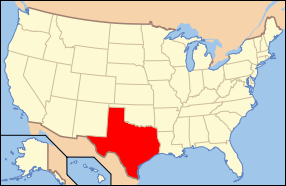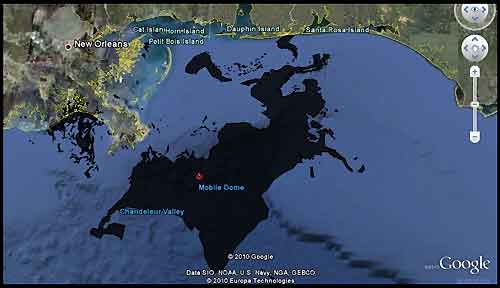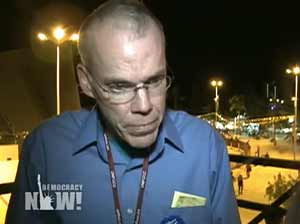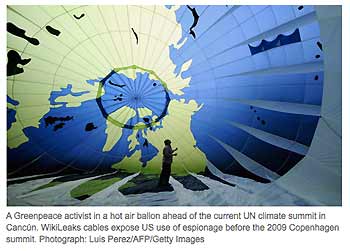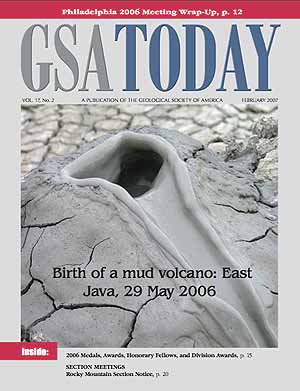Biblio
Mixplex Environmental Justice Blogroll Note
On Martin Luther King Day (MLK Day Jan. 17, 2011), America deserves to be reminded that hard on the trail of King's Civil Rights legacy in Alabama is the way Alabama's poor have been victimized by negligent environmental law.
The daily posts of Max Shelby and his group, blogging in Alabama about the environment, politics, big business and corruption are some of the boldest independent voices writing in the U.S. on environment justice today.
If you're not following writers like Shelby's Vincent Alabama Confidential, Sharon Wilson's Bluedaze, Shelly Thomas on Futurism Now, Ken Ward Jr.'s Coal Tattoo, the late Karen Korell's Splashdown, Bill Wolfe's Wolfenotes, Amy Mall's blog on NRDC Switchboard, Rick Piltz on Climate Science Watch, and the many other personal and professional authors, videomakers, humorists, and journalists located by scrolling through these double pages: Background, Companies, Experts, Government, Legal, Opinions and Press; you are missing out on the most entertaining, free, participatory, First Amendment, punch the bully in the nose shows in this nation.
This writing takes courage and sacrifice and I want to recognize them all here on MLK Day through Shelby's 2010 post as the proudest way that we demonstrate to the World that we will manage our industries without the sacrifice of liberty by ensuring that our laws are fair and just to all. (Neil Zusman, 2011-01-14.)
BARD's (Business Alliance for Responsible Development) "Big Mule" Drummond Coal Sued--Part II
We left off with issues raised regarding Region 4 and the questionable results (in contrast to the SE study results) of their monitoring program implemented after the recent lawsuit was filed on behalf of the African-American residents who claim to be devastated by serious health issues from the toxic discharges from Drummond Company, Inc.
Why is it this particular group of citizens are usually the ones most harmed? "Big Mule" philosophies carry through to federal agencies here in the land of cotton:
Nearly four decades of EPA Region 4's harmful and discriminatory decisions have turned too many black communities into the dumping grounds, lowering nearby residents' property values, stealing their wealth, and exposing them to unnecessary environmental health risks.
Big business and politicians play a smoke and mirror game of corporate welfare that is disadvantageous to their citizens by cutting "economic progress deals" with each other that are designed to line both their pockets and strip communities of the right to exist in a clean environment.
In our opinion, that is exactly what is going on with big businesses such as Drummond and the State of Alabama.
See: A search for Mixplex articles mentioning Alabama
See: Frack MixPlex Gives Vincent Alabama Confidential and Others A Much Appreciated "Attaboy!"
And we thank them for it, along with their hard work on advancing issues that we all should care about. Kudos to our fellow like-minded bloggers and the mighty keyboards they sit behind. We would add the work of Dr. Robert Bullard as high on our own list, because without him there would be no modern day environmental justice movement.
The Barnett Shale and Marcellus Shale have similar geological properties.
The Barnett Shale is known as a "tight" gas reservoir, indicating that the gas is not easily extracted. The shale is very hard, and it was virtually impossible to produce gas in commercial quantities from this formation until recent improvements were made in hydraulic fracturing technology and horizontal drilling, and there was an upturn in the natural gas price.
Future development of the field will be hampered in part by the fact that major portions of the field are in urban areas, including the rapidly growing Dallas-Fort Worth Metroplex.
Some local governments are researching means by which they can drill on existing public land (e.g., parks) without disrupting other activities so they may obtain royalties on any minerals found, whereas others are seeking compensation from drilling companies for damage to roads caused by overweight vehicles (many of the roads are rural and not designed for use by heavy equipment). In addition, drilling and exploration have generated significant controversy.
See the Notes and External Links on this Ft. Worth, Texas Shale deposit using fracking since 2005.
Also see Sharon Wilson, Bluedaze Blog.
Please note that information taken from Wikipedia should be verified using other, more reliable sources. It is a good place to start research, but because anyone can edit Wikipedia, we do not recommend using it in research papers or to obtain highly reliable information.
The Barnett Shale Energy Education Council (BSEEC) is a gas and oil industry sponsored community resource that provides information to the public about gas drilling and production in the Barnett Shale region in North Texas.
Recent release (July 14, 2010):
The Barnett Shale Energy Education Council (BSEEC) today released the results of its air quality testing project which showed there are no harmful levels of benzene and other compounds being emitted from natural gas sites tested in Fort Worth and Arlington City Council District 2.
The Barnett Shale - the oldest producing well in the barnett shale is still producing from its primary pressure created by the frac job by Sanders and Son.
See the true cost of gas!
Natural gas is just another dirty fossil fuel. for more info see: Bluedaze
A [Barnett Shale] drilling rig operating for 3 months has the same impact as a city of 4,000 people—water use, solid waste generation, air emissions and traffic.
~David Burnett, Dir. Global Petroleum Research Institute
Slate is a general readership online magazine offering analysis and commentary on politics, news, and culture. It was bought by the Washington Post from Microsoft in 2004.
In the last half-century, three major oil spills have significantly marked American politics—the 1969 Santa Barbara, Calif., spill, the 1989 Exxon Valdez spill, and now the 2010 spill in the Gulf.
They have a striking thing in common: Each occurred after the oil industry successfully resisted demands for safety improvements that would have greatly reduced the damage the spills caused.
The Valdez spill invigorated institutional investors and environmental activists to press companies to adopt the Ceres Principles, a new code of corporate environmental conduct. The accident also brought the passage of the Oil Pollution Act of 1990, which barred the Exxon Valdez ship and others involved in oil spills from operating in Prince William Sound.
See: CiCi O'Donnell. July/August 2010. The Loma Prietan | Sierra Club. "Forty-one Years Later, Have Things Changed?". Section titled, "Political Fallout." Halfway down the page: Eventually, Secretary of the Interior Walter J. Hickel admitted partial responsibility for the permit that allowed Union Oil to use the inferior casing that caused the leak.
See: Pew Environment Group (PEG) Factsheet: Industry Opposition to Government Regulation (PDF), October 14, 2010. Article explains the industrial resistance to govenment regulation in the fields of acid rain, asbestos, airbags, catalytic converters, seat belts, lead paint, etc.
For decades, corporations and their trade associations have opposed regulations aimed at protecting human health and the environment. Industry has repeatedly argued that the cost of complying is too high, the benefits to society don’t justify the investment, or the regulations will cost jobs. When regulations have been implemented, however, the compliance costs have proved to be less and the benefits greater than industry officials predicted.
See: National Commission on the BP Deepwater Horizon Oil Spill and Offshore Drilling | Mixplex
Digital landscape of the pristine Upper Delaware Watershed - before and after gas drilling.
A slow quiet simulated time lapse on what can happen to the scenic Delaware watershed as gas drilling proceeds in Pennsylvania.
The potential consequences for the environment and society of BP's funded research on biofuels at Berkeley are deeply disturbing. Many scientists have long predicted that the large-scale industrial boom in biofuels will be disastrous for farmers, the environment and consumers and now marine ecosystems.
The Daily Californian is an independent, student-run newspaper.
One of the few campus newspapers in the country that is completely independent from the university it covers, the Daily Cal supports itself entirely from advertising revenue and does not receive equipment resources or any form of financial support from the university or the Associated Students of the University of California.
See: Investigate Research - Fri, Oct 22, 2010.
See: Report: UC Berkeley Research Influenced Too Heavily by BP - Mon, Oct 18, 2010.
See: Discussion of Bias Essential in Private Funding Debate - Mon, Aug 16, 2010.
A who's who of Religious Right leaders have come together for a 12-part series called "Resisting the Green Dragon" which seeks to expose how the environmental movement is out to control the world and destroy Christianity.
People for the American Way began in 1980 when acclaimed television and movie producer Norman Lear began searching for an appropriate response to what he perceived as a new and disturbing political movement in America.
See: Cornwall Alliance. A Renewed Call to Truth, Prudence, and Protection of the Poor: An Evangelical Examination of the Theology, Science, and Economics of Global Warming.
See: Gas Drilling Discussion (Suggested Agenda for) : Biblical and Theological Considerations.
See: Civilianism Blog. Resisting Cornwall Alliance Evil Anti-Green Propaganda.
See: Earth Day: Give Earth a Hand | Fracking Resource Guide.
See: Berry, Wendell. "Manifesto: The Mad Farmer Liberation Front." In Context. Fall/Winter 1991.
The Mad Farmer Liberation Front
by Wendell Berry
Love the quick profit, the annual raise,
vacation with pay. Want more
of everything ready-made. Be afraid
to know your neighbors and to die.
And you will have a window in your head.
Not even your future will be a mystery
any more. Your mind will be punched in a card
and shut away in a little drawer.
When they want you to buy something
they will call you. When they want you
to die for profit they will let you know.
So, friends, every day do something
that won't compute. Love the Lord.
Love the world. Work for nothing.
Take all that you have and be poor.
Love someone who does not deserve it.
Denounce the government and embrace
the flag. Hope to live in that free
republic for which it stands.
Give your approval to all you cannot
understand. Praise ignorance, for what man
has not encountered he has not destroyed.
Ask the questions that have no answers.
Invest in the millenium. Plant sequoias.
Say that your main crop is the forest
that you did not plant,
that you will not live to harvest.
Say that the leaves are harvested
when they have rotted into the mold.
Call that profit. Prophesy such returns.
Put your faith in the two inches of humus
that will build under the trees
every thousand years.
Listen to carrion - put your ear
close, and hear the faint chattering
of the songs that are to come.
Expect the end of the world. Laugh.
Laughter is immeasurable. Be joyful
though you have considered all the facts.
So long as women do not go cheap
for power, please women more than men.
Ask yourself: Will this satisfy
a woman satisfied to bear a child?
Will this disturb the sleep
of a woman near to giving birth?
Go with your love to the fields.
Lie down in the shade. Rest your head
in her lap. Swear allegiance
to what is nighest your thoughts.
As soon as the generals and the politicos
can predict the motions of your mind,
lose it. Leave it as a sign
to mark the false trail, the way
you didn't go. Be like the fox
who makes more tracks than necessary,
some in the wrong direction.
Practice resurrection.
Berry, Wendell. "Manifesto: The Mad Farmer Liberation Front." The Country of Marriage. New York: Harcourt Brace Jovanovich. 1973.
Big boys in Tulsa
by: stopcompressors
Discussion at an imaginary natural gas exploration and production company headquarters.
This video by StopCompressors was Posted by Flower Mound Citizens Against Urban Drilling.
Our Mission: To work in a legal, ethical, and civil manner to stop urban gas drilling in the highly residential areas of North Texas. We are not against all gas drilling, but rather that which will adversely affect the public safety, the enjoyment of our homes, and our overall quality of life. We support the need for better regulation and accountability of the Oil & Gas Industry in rural and urban areas of Texas.
xtranormal’s mission is to bring movie-making to the people. Everyone watches movies and we believe everyone can make movies. Movie-making, short and long, online and on-screen, private and public, will be the most important communications process of the 21st century.
xtranormal's revolutionary approach to movie-making builds on an almost universally held skill—typing. You type something; we turn it into a movie. On the web and on the desktop.
WILLIAMSPORT, Pa. -- Halliburton is building a permanent outpost here on the edge of a one of the 21st century's biggest energy booms.
...Halliburton is a ubiquitous presence in the world's biggest oil fields. For the past two months, it has defended itself against charges that shoddy cement work contributed to a methane blast that sank BP's rig in the Gulf of Mexico and killed 11 people. As long as the well keeps gushing, public anger could weaken America's appetite for offshore drilling.
But far from the Gulf Coast and outside of the media spotlight, Halliburton and the oil and gas industry are spending billions of dollars in preparation for decades of drilling in the Marcellus Shale. The 95,000-square-mile sheet of natural gas-rich sediment sprawls across Pennsylvania, southern New York, West Virginia and eastern Ohio.
...Energy companies from India and Japan are dumping shareholder wealth into Appalachian gas production. In February, Japan's Mitsui & Co. entered a $1.4 billion joint venture with Anadarko Petroleum Corp.
Pittsburgh-based Atlas Energy Inc. in April formed a $1.7 billion partnership with Reliance Industries Ltd., the largest private-sector company in India. The conglomerate is controlled by Indian billionaire Mukesh Ambani, who has been pushing the company to secure lucrative energy investments outside of India.
"In the last few years, we realized we had this extremely valuable asset," says Jeff Kupfer, senior vice president of Atlas. "We needed a lot of capital to develop it." Once Atlas put out a feeler, the Marcellus prospect attracted attention from the world's major oil and gas companies. "There was something in the chemistry with Atlas and Reliance."
Hundreds of millions of dollars in grants from major oil companies may have compromised the ethics of energy research at such institutions as UC Berkeley, UC Davis, Stanford and Cornell.
Cornell is considering leasing some of its land holdings to natural gas drillers. SUNY Binghamton signed a $1.4 million dollar gas lease in 2008.
See: Editorial - A Decision Above Reproach | The Cornell Daily Sun.
See: Lee Fuller. "HF 101: As Cornell Begins Study of Shale Gas Exploration, Energy In Depth Offers Itself Up as Resource for Ad Hoc Panel". Energy in Depth.
Read the full report here:
According to the 212-page study, released by the Center for American Progress, a Washington-based think tank, such companies as BP, Chevron, and ConocoPhillips have funded more than $800 million in potentially compromised research with few protections for academic independence.
For example, since 2002, Stanford has received $225 million from a consortium led by ExxonMobil to study technology to curb greenhouse gas emissions. The company operates refineries, oil drilling facilities, tankers and gas stations, making it a major emitter of carbon dioxide and other greenhouse gases globally.
As part of the Stanford contract, the industry controls all four voting seats on the research alliance's governing body, and peer review of faculty research proposals is done "at the discretion of industry sponsors," the report says.
...this report represents the first time independent analysts have systematically examined a set of written university-industry agreements within a specific research area—in this case, the energy R&D sector—to evaluate how well they balance the goals of the corporate sponsors to produce commercial research that advances business profits with the missions of American universities to perform high-quality, disinterested academic research that advances public knowledge for the betterment of society.
See: GCEP Director Sally M. Benson responds to Center for American Progress report: More
See: DemocracyNow!: Big Oil Goes to College: BP, ExxonMobil, Chevron, Shell Fund & Influence Research at Major Universities
See: DemocracyNow! Transcript on truth-out.org.
See: Helene Cooper and John M. Broder. "BP’s Ties to Agency Are Long and Complex". May 26, 2010. NYT.
Hopefully, this NYT “mention” will draw some much-needed media attention to the actual contents of my own report, which examines university-industry alliances to finance energy research on campus, and raises questions about whether the current structure of these alliances adequately protects the universities’ academic mission and their ability to carry out independent, high-quality, reliable, public-good research. This article today does not address these issues at all. But, helpfully, Cooper and Broder in their NYT story did note that BP, in a May 24th press release, has pledged $500 million for “Independent Research into Impact of Spill on Marine Environment,” with the first grants going to the University of Louisiana. It looks like the iron is hot to look more deeply at university-industry research partnerships of this kind. – Jennifer
Media reports indicate the University of California system may be on the verge of signing a contract to create the proposed Energy Biosciences Institute (EBI) with BP. It is obviously a matter of urgent priority for the health of the planet to promote research and innovation related to alternative energy, and it is imperative that public research institutions direct major new resources to such endeavors. It is not at all obvious, however, that public institutions should do this in collaboration with giant oil companies that are contributing massively to climate change.
At minimum, such collaborations require intense scrutiny and informed debate. The prospect of giant carbon polluters directing research related to and gaining control of key energy technologies is very troubling -- especially when the research is conducted at, and the technologies are developed in collaboration with, public institutions. In this regard, the details of the UC-BP research agreement are of great importance. They will specify how research priorities are to be established, and how the fruits of the research collaborationare to be managed and controlled.
See: LSU News. June 15, 2010. "LSU Receives $5 Million From BP to Fund Spill-Related Research Grant to support studies in everything from human and environmental impact to engineering solutions".
The funds will come from BP’s $500 million Gulf of Mexico Research Initiative, or GRI, which will support universities in the Gulf area in research on the fate and effects of oil, dispersed oil and dispersants.
Silhouetted against the sky at dusk, excess steam, along with non-scrubbed pollutants, spew from the smokestacks at Westar Energy's Jeffrey Energy Center coal-fired power plant near St. Marys, Kan. Credit: AP Photo/Charlie Riedel.
In the name of job creation and clean energy, the Obama administration has doled out billions of dollars in stimulus money to some of the nation’s biggest polluters and granted them sweeping exemptions from the most basic form of environmental oversight, a Center for Public Integrity investigation has found.
The administration has awarded more than 179,000 “categorical exclusions” to stimulus projects funded by federal agencies, freeing those projects from review under the National Environmental Policy Act, or NEPA. Coal-burning utilities like Westar Energy and Duke Energy, chemical manufacturer DuPont, and ethanol maker Didion Milling are among the firms with histories of serious environmental violations that have won blanket NEPA exemptions...
...Documents obtained by the Center show the administration has devised a speedy review process that relies on voluntary disclosures by companies to determine whether stimulus projects pose environmental harm. Corporate polluters often omitted mention of health, safety, and environmental violations from their applications.
Related Stories:
NEPA Exemptions: The Dirty Dozen List
Wisconsin Firm Receives Energy Grant Despite Chronic Pollution Problems
See: Pollution in Your Community | Scorecard
See: A Life’s Value May Depend on the Agency, but It’s Rising
See: Climate Co-benefits and Child Mortality Wedges
See: U.S. Environmental Protection Agency (EPA): Hydraulic Fracturing Study (2010-2012)
Democracy Now! caught up with McKibben at the Cancún Climate Conference in Mexico. We asked for his reaction to the diplomatic cables released by WikiLeaks showing how the U.S. manipulated last year’s climate talks in Cancún.
Some of the new data [Wikileaks] coming out today makes it clear that everyone’s suspicion that the U.S. was both bullying and buying countries into endorsing their do-little position on climate were even sort of worse than we had realized...
...They [The U.S. Congress] think because they can change the tax code, they can change the laws of nature...
...this U.N. process, has been going on forever, and it’s getting nowhere, and it’s not going to get anywhere substantive, until we have some power from the outside to push it.
"It’s just like a family reunion aboard the Titanic, you know?" And that’s sort of what it feels like. We can’t keep doing this. Until we can build some power outside of these arenas to actually push these guys, you know, this is—in the end, it’s not about how well people are communicating or how great the policy papers are. It’s on who has the power. And at the moment, that power rests in the hands of the fossil fuel industry and their allies in governments around the world.
And until we build some independent outside movement power to push back, then we’re never going to get—we’re going to get scraps from the table, at the very best.
See: Damian Carrington. "WikiLeaks cables reveal how US manipulated climate accord." The Guardian.co.uk. 2010-12-03.
See: Ian Traynor. "WikiLeaks cables: Cancún climate talks doomed to fail, says EU president." The Guardian.co.uk. 2010-12-03.
Abstract
On 29 May 2006, an eruption of steam, water, and, subsequently, mud occurred in eastern Java in a location where none had been previously documented.
This “pioneer” mud eruption (the first to occur at this site) appears to have been triggered by drilling of overpressured porous and permeable limestones at depths of ~2830 m below the surface.
We propose that the borehole provided a pressure connection between the aquifers in the limestones and overpressured mud in overlying units.
As this was not protected by steel casing, the pressure induced hydraulic fracturing, and fractures propagated to the surface, where pore fluid and some entrained sediment started to erupt.
Flow rates remain high (7000–150,000 m3 per day OR 1,849,204 gallons to 22,500,000,000 gallons per day) after 173 days of continuous eruption (at the time of this writing), indicating that the aquifer volume is probably significant. A continued jet of fluid, driven by this aquifer pressure, has caused erosion and entrainment of the overpressured mud.
As a result, we predict a caldera will form around the main vent with gentle sag-like subsidence of the region covered by the mud flow and surrounding areas. The eruption demonstrates that mud volcanoes can be initiated by fracture propagation through significant thicknesses of overburden and shows that the mud and fluid need not have previously coexisted, but can be “mixed” within unlithified sedimentary strata.
See: Wikipedia | Sidoarjo mud flow
In February 2010, a group led by experts from Britain's Durham University said new clues bolstered suspicions the catastrophe was caused by human error. In the peer-reviewed journal, Marine and Petroleum Geology, Professor Richard Davies, of the Centre for Research into Earth Energy Systems (CeREES), said that drillers, looking for gas nearby, had made a series of mistakes.
They had overestimated the pressure the well could tolerate, and had not placed protective casing around a section of open well. Then, after failing to find any gas, they hauled the drill out while the hole was extremely unstable. By withdrawing the drill, they exposed the wellhole to a "kick" from pressurised water and gas from surrounding rock formations. The result was a volcano-like inflow that the drillers tried in vain to stop.
In the same Marine and Petroleum Geology journal, the group of geologists and drilling engineers refuted the allegation showing that the “kick” maximum pressure were too low to fracture the rock formation.
The well pressure analysis based on credible data showed that the well is stronger than the maximum pressure exerted on the well. This implied that the hydro fracturing hypothesis is likely to be incorrect.
See: BBC News. 2007. "Drilling blamed for Java mud leak." BBC News | Asia-Pacific. January 24.
See: Alexis Madrigal. 2010. "Mud Volcano Was Man-Made, New Evidence Confirms". Wired | Science. February 11.
Sawolo, N., E. Sutriono, B. P Istadi, and A. B Darmoyo. 2009. "The LUSI mud volcano triggering controversy: Was it caused by drilling?" Marine and Petroleum Geology 26, no. 9: 1766–1784.
See: Sawolo, N., Sutriono, E., Istadi, B., Darmoyo, A.B. (2010). "Was LUSI caused by drilling? – Authors reply to discussion". Marine & Petroleum Geology 27:1658–1675.








